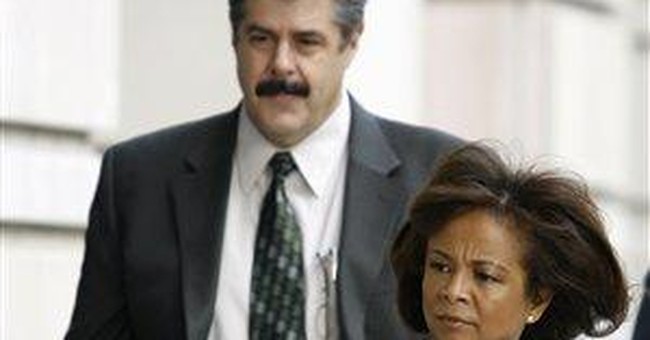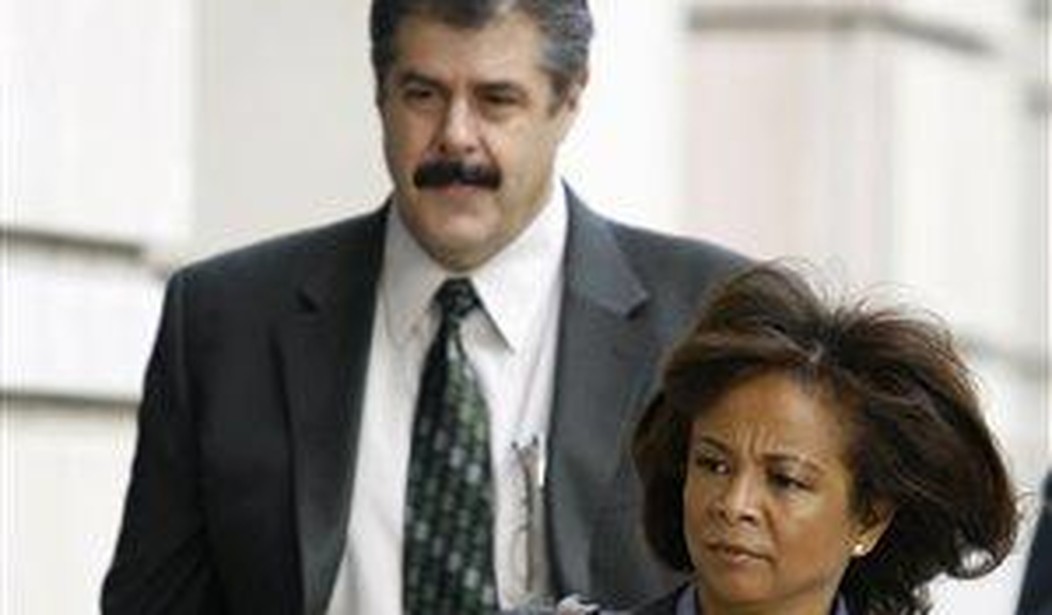
Senator Ted Stevens of Alaska was the longest-serving United States Senator on the Republican side when he was indicted in August 2008 by the Bush Justice Department on a variety of fraud charges connected to allegations that he took money from campaign contributors in Alaska. The case was relatively complex and was handled by two prosecutors from the US Attorney’s Office in the District of Alaska, as well as attorneys from the Public Integrity Section of the DOJ Criminal Division in Washington. The charges were filed in Washington, and the trial was held in Washington.
The indictment against Stevens was handed down on July 29, 2008 — 98 days prior to November 4, 2008, national election in which Stevens was running for 7th term in the Senate.
Stevens was convicted by the jury on October 27, 2008, after a nearly five-week-long trial. Jury selection had begun on September 23, and opening statements were given on September 25, 2008.
The trial was plagued throughout by late disclosures by the government of FBI reports, witness interview statements, and other evidence which the defense was entitled to by law and pursuant to the rules of discovery in federal criminal cases. On October 8, 2008, Judge Emmet Sullivan denied a mistrial requested by the Defense due to the late production by the government of more than 100 FBI interview memoranda of witnesses the government did not intend to call — including witnesses that had arguably exculpatory information favorable to Sen. Stevens.
On November 4, 2008, Stevens lost his bid for reelection to Anchorage Mayor Mark Begich by 3700 votes.
On April 1, 2009, in response to a long series of revelations about prosecutorial misconduct (including a female FBI agent having had a romantic relationship with a key witness against Stevens — who was then dropped from the case), Obama AG Eric Holder filed a motion to dismiss the case prior to Stevens being sentenced. Judge Sullivan granted the motion — he had already referred DOJ prosecutors for internal DOJ investigation and possible contempt of court — and Stevens’ conviction was vacated.
What is the oddity in the facts as described above?
The fact that jury selection in Stevens’ trial came only 56 calendar days after the indictment was returned by the grand jury.
Stevens’ attorney, famed Iran-Contra defense attorney Brendan Sullivan, understood that Stevens could not stand for re-election Alaska with the indictment still hanging over his head. Sullivan also likely understood that the government had rushed to secure the indictment ahead of the DOJ policy that precluded indicting a person running for office less than 90 days prior to the election.
In recognition of those two facts, Brendan Sullivan informed the prosecutors and the Court that Stevens would be asserting his rights to a fair and speedy trial under the Constitution and the federal Speedy Trial Act, 18 U.S.C. Sec. 3161(c)(1), which states:
In any case in which a plea of not guilty is entered, the trial of a defendant charged in an information or indictment with the commission of an offense shall commence within seventy days from the filing date (and making public) of the information or indictment, or from the date the defendant has appeared before a judicial officer of the court in which such charge is pending, whichever date last occurs.
Sullivan and Stevens demanded that his trial begins at the earliest possible date and that he would not waive his statutory “Speedy Trial Act” rights to have the trial begin not more than 70 calendar days after his initial appearance.
That tactical decision meant the defense had less than two full months to review and analyze all the evidence in the government’s case, and to prepare to present evidence of their own in Stevens’ defense. But Brenden Sullivan had read the situation correctly, the prosecutors had hastily assembled their indictment to file it prior to the 90-day limit, and their case was not organized. All the witnesses had not been interviewed, all the evidence hadn’t been gathered, and all the reports had not yet been written. But by filing the indictment they started the clocking running on a very short window of time within which all that would need to be accomplished AND have the case prepared for trial where the government has the burden of proof and has to go first.
While the prosecutors should have been organizing their evidence and preparing their witnesses for trial, they were instead still interviewing witnesses and chasing down evidence they did not yet have. As a result, they acquired evidence late, they turned it over to the defense late, and they incurred the wrath of Judge Sullivan as a result.
The presentation of the case was disorganized and poor, having to continually account for late developing evidence — or for the lack of evidence where Judge Sullivan barred its use due to late disclosures. But they had a GOP officeholder and a DC jury so they managed to come out with a conviction — only it was a conviction that didn’t stand up to scrutiny and was later thrown out.
This is why the basic rule for federal prosecutors is ALWAYS have your case ready for trial on the day you seek an indictment. Never count on the possibility that you will have additional time to build your case after the case is indicted by doing things after the indictment that should have been done prior to the indictment.
I have always wondered why more defense attorneys didn’t take his calculated risk to force the government to go to trial quickly. It probably has more to do with the “fear” of their clients , and the “sound” advice of a defense attorney to give the government more time to get ready by waiving your right to a trial within 70 days.
Pushing for an indictment from Durham before he’s fully prepared to take a case to trial is a path to a potentially unhappy outcome. Durham understands that.
I wish the public understood it better.














Join the conversation as a VIP Member